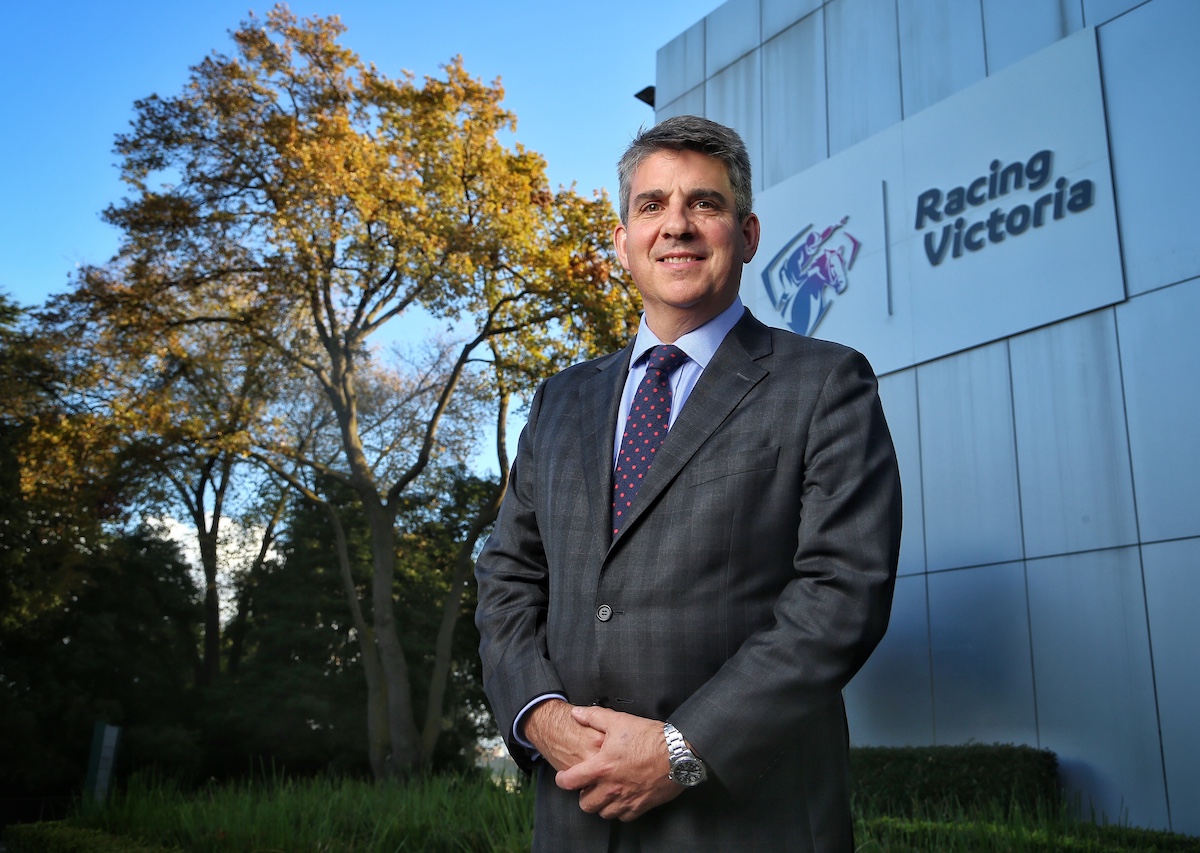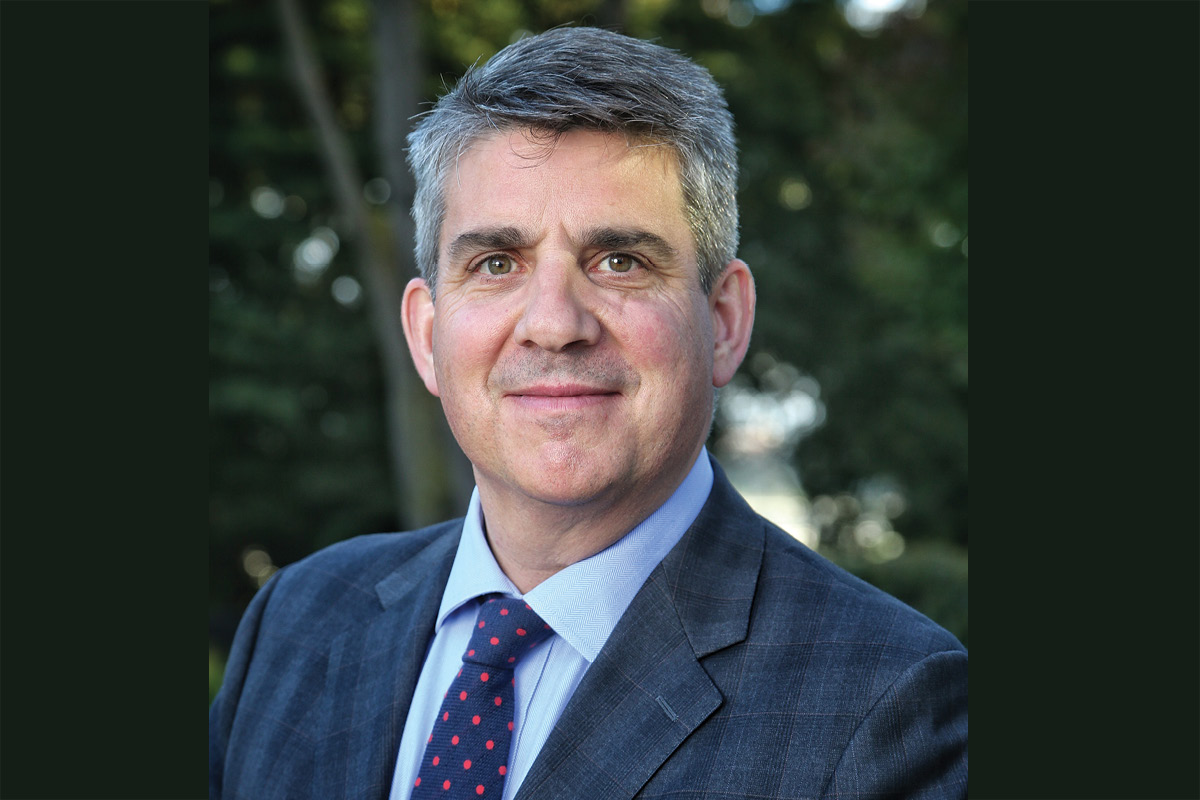Growing up in the picturesque rural county of Norfolk in the UK, Racing Victoria CEO Giles Thompson had an affinity for horse racing from an early age. His stepfather worked as the course doctor at the local venue in Fakenham, and he has vivid memories of his early days there, the “community feel generated at the track”, and the “sheer intensity and challenge” of the big-ticket races.
This passion only grew when he worked as a C-suite executive at betting exchange Betfair, including three years as CEO. “It deepened my love of the sport,” Giles says. “We were very racing-focused, we sponsored many meetings, tracks and clubs whenever we could. I spent a lot of time exposed to racing and enjoying it as a sport.” A background in betting proved useful when he moved to Racing Victoria in 2015, initially in a CFO role.
“It gave me a great understanding of wagering. Directly or indirectly, most of our income still comes from that sector; A$351 million of our A$408 million last year, so it’s extremely important that we understand that industry.”
Etched into the Australian psyche
The scale of Victorian racing, which spans 67 venues and runs 363 days a year, is immense. There is also the responsibility that comes with running a sport that is etched so deeply into the Australian psyche.

“We’re a rich and diverse industry, full of passionate, highly engaged people,” Giles says. He describes the industry as “hugely complex” and says working with heavily invested stakeholder groups such as Victoria’s 70,000 horse owners, presents its own challenges.
“Owning a racehorse is a unique and extraordinary experience. No other elite sport allows its customers to actively participate in it. You can participate in racing no matter who you are.”
The issue of gender equality
Giles also nominates a need to increase gender equality in racing as a priority and notes horse racing is singular among professional sports in having men and women compete head to head. Michelle Payne became the first woman to ride a Melbourne Cup winner in 2015 and Giles says her high-profile success was an exciting story for the sport.
“We wanted to try and grab that opportunity to push the agenda for greater gender equality. We need to continue to knock down barriers, and certainly Michelle’s win helped us get that Kodak moment.”
Staying relevant to millenials
Another ongoing project is ensuring racing remains appealing to a young demographic. “Our clubs are continuing to innovate, particularly with our Festival of Racing program, which offers a more relaxed experience and is really targeting the younger audience and families. From the punter’s perspective, it’s also important we work closely with our marketing team and wagering service providers such as the TAB to ensure their products and the way they sell racing is targeted to the 20-somethings.”
Recently, Racing New South Wales launched its ‘Everest’ concept, a high-profile A$10 million race meet staged squarely in the middle of Racing Victoria’s spring carnival season. While it was seen as a provocation in some circles, Giles welcomes the competition and is optimistic that Everest, if timed appropriately, could increase interest in the sport rather than cannibalise Racing Victoria’s marquee events. “There is evidence that there were complementary aspects to it. It’s great to see innovation in racing and we’re always keen to work with other bodies to advance the sport as a whole.”
As a sport, we are very vibrant at the moment…Being around it is an honour and a privilege.
The key to addressing all these challenges, Giles says, is ensuring the industry’s most productive revenue stream remains strong. “We can’t fulfil any of these ambitions unless we address our long-term wagering strategy. The landscape is rapidly changing and we need to continue to respond to that.”
It’s okay to say ‘no’
Working such a demanding role and having a young family, Giles admits he has become good at saying no to things as he strives for some balance. His passion for the ‘sport of kings’, however, remains undimmed. He proudly reports that important metrics such as race attendances, TV ratings and website users are all up on last spring.
“As a sport, we are vibrant at the moment. People are so passionate about racing and it contributes an enormous amount to the economy, over A$2 billion a year in Victoria alone. Being around it is an honour and a privilege.”



